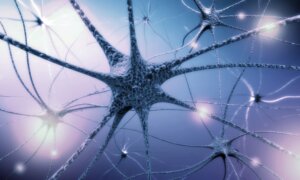Spending too much time scrolling through sensationalized news and negative social media posts may lead you to question the meaning and purpose of life. In a first-of-its-kind study, researchers discovered that this habit, known as “doomscrolling,” is linked to existential anxiety.
The study examined data from 800 Iranian and U.S. university students who were all active social media users. Researchers found that, despite the distinctions between cultural perspectives, doomscrolling increased the likelihood of experiencing symptoms of existential anxiety in both groups.
“The existential dimensions of news consumption, particularly in the context of negative-tone news, remain a relatively underexplored facet of the psychology of news consumption,” the study’s lead author, Reza Shabahang, told The Epoch Times in an email. “Our study sought to provide preliminary insights into this overlooked area.”
Doomscrolling: The Modern Digital Epidemic
Shabahang’s work is highly relevant, given the current digital landscape. Although negative media isn’t a new phenomenon, how we interact with it has changed. The shift became particularly pronounced at the height of the COVID-19 pandemic, when “doomscrolling” entered the public lexicon to describe our collective fixation with checking for news updates—a fixation that can lead to anxiety, depression, and a sense of being overwhelmed.
Since then, psychologists such as Ehab Youssef, a mental health researcher and writer at Mentalyc, have reported seeing these effects more and more in their clients.
“It’s like they’re carrying the weight of the world on their shoulders, constantly bombarded with bad news that makes everything seem so bleak,” Youssef told The Epoch Times. “I’ve had clients describe feeling stuck in a cycle where they know the content is affecting them negatively, but they can’t seem to stop scrolling.”
According to the American Psychological Association, this ongoing cycle can cause a phenomenon known as media-induced post-traumatic stress disorder, in which people exposed to secondary accounts of others’ trauma may suffer psychological effects similar to those they would experience if they'd experienced the events themselves.
Anxious About Life? Blame the News Cycle
But world events aren’t solely to blame for the rise of doomscrolling—our brains also play a role. Because negative news may signal a potential threat, we react to them more strongly than to positive stories.
This “negativity bias” prompts us to seek the very news that unsettles us. A 2023 article published in Nature Human Behavior found that, in average-length headlines, “each additional negative word increased the click-through rate by 2.3 [percent]” while positive words decreased the likelihood of clicks by 1 percent. Negative content also prompted more engagement, including shares and social media reactions.
News outlets and social platforms have increasingly moved toward promoting content that elicits such engagement and encourages users to keep scrolling. Shabahang and his colleagues observed that this has led to an environment in which “emotionally neutral news has diminished, and a substantial portion of coverage is now characterized by emotions such as anger, fear, disgust, and sadness.”
Constant exposure to this stream of negativity can shake our core beliefs and cause us to question the nature of humanity and the purpose of life. It can make us feel as though life is fragile, the world is unpredictable, and benevolence and justice are absent.
“Before our exposure to all of this, I think it was easier to think people are generally good and humanity is generally good,” Stacey Rosenfeld, licensed psychologist and director of the Gatewell Therapy Center, told The Epoch Times. “And I think we’re now being exposed to more content that has us questioning ... like, what is happening with the world?”
These feelings and questions are characteristic of existential anxiety—the sense that life has no ultimate meaning. Paradoxically, a 2022 article in The Guardian reported that existential anxiety can cause us to doomscroll even more in an attempt to find news that assuages our feelings of hopelessness. But because algorithms prioritize content with high engagement, we’re likely to continue encountering stories that confirm our negative thoughts.
Does Life Have Meaning?
Our susceptibility to existential anxiety may be partly because of a societal shift away from a shared belief in objective truth toward existentialism and postmodernism.
Existentialism, according to an article in the Stanford Encyclopedia of Philosophy, rejects absolutes of morality, meaning, and human nature in favor of the belief that individuals must create their own definitions of meaning and self.
Similarly, postmodernism posits that reality itself is a human construction and nothing can be objectively known.
Both philosophies can foster a sense of purposelessness that feeds existential anxiety, yet more people are embracing these relativistic worldviews. As George Barna, director of research at the Arizona Christian University Cultural Research Center, reported in the organization’s American Worldview Inventory 2024, “Young adults tend to form their worldview primarily through feelings and personal experiences, rather than logic and facts.”
And data from the Pew Research Center show that the number of people with no religious affiliation has increased to 29 percent in 2021 from 5 percent in 1972.
This diminishing belief in universal absolutes can exacerbate the effects of doomscrolling. Without a concrete sense of reality to explain human nature and the state of the world, we may find ourselves on an endless search for answers we can’t find in the increasingly negative content we encounter.
“This uncertainty can exacerbate feelings of existential dread, making the world seem even more chaotic and unpredictable,” Youssef said.
But, he added, people with an objective foundation “often find it easier to navigate through the sea of information.” They’re better able to distinguish credible sources from sensationalism and avoid the uncertainty that can lead to existential concerns.
How to Stop Doomscrolling
Shabahang and his colleagues highlight the importance of approaching news and social media with discernment. The results of their study “suggest that prioritizing prudent consumption of negative news may be helpful in avoiding undesirable existential feelings.”
To support such prudence, those who struggle with doomscrolling can take practical steps such as:
- Deleting apps that tend to prompt doomscrolling, such as news aggregators and social media
- Making deliberate choices about which news sources to read instead of passively scrolling through feeds
- Placing the phone in another room at night to avoid the temptation of bedtime scrolling
- Setting a daily time limit for news and social media
- Prioritizing real-life interactions and activities such as spending time with friends, taking walks, and engaging in productive hobbies
Shabahang says that when we engage with media, it’s important to think about why we’re engaging and how it makes us feel.
“We should be conscious of the reasons driving our media use and news consumption,” he said. “Being aware of how our thoughts and emotions shift in response to engaging with media and news can help us manage our consumption more effectively and maintain a healthier perspective.”
If you experience persistent feelings of anxiety, dread, or depression despite limiting your news consumption, seek help from a licensed professional.












